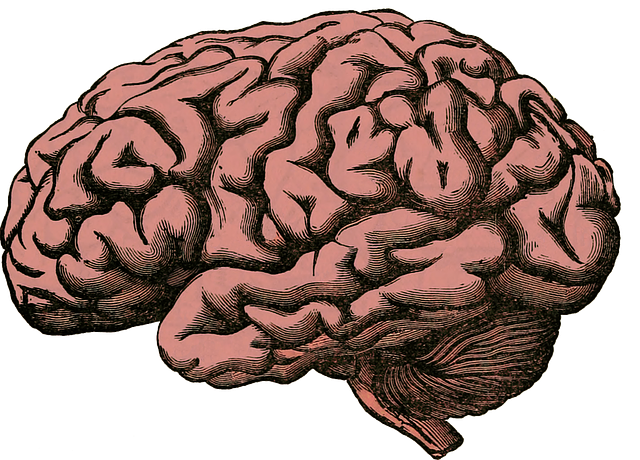Risk assessment and management are crucial in mental health care, especially for practitioners using Centennial Dialectical Behavioral Therapy (CDBT). CDBT is an effective tool to predict and mitigate risks like suicidal ideation and self-harm by teaching clients skills in mood management, coping, and stress mitigation. This proactive approach not only protects clients but also enhances resilience and fosters a recovery-oriented environment. Practitioners face unique challenges, including burnout, due to the demanding nature of their work, necessitating self-care and awareness campaigns to reduce stigma. Integrating CDBT techniques and ethical practices enables professionals to provide tailored care, improve client outcomes, and enhance their own mental well-being through enhanced emotional regulation and conflict resolution skills.
“In the realm of mental health care, risk assessment is a vital tool for ensuring patient safety. This comprehensive guide explores the intricate process of evaluating risks among clients undergoing Centennial Dialectical Behavioral Therapy (DBT). From understanding the foundational principles of risk assessment to delving into specific DBT practices, we navigate strategies for identifying and mitigating high-risk cases. Additionally, ethical considerations and best practices are highlighted, offering mental health professionals a robust framework for navigating complex patient scenarios.”
- Understanding Risk Assessment in Mental Health Care
- The Role of Dialectical Behavioral Therapy (DBT) in Risk Management
- Identifying Risks Specific to Centennial DBT Practice
- Strategies for Mitigating and Monitoring High-Risk Cases
- Ethical Considerations and Best Practices for Mental Health Professionals
Understanding Risk Assessment in Mental Health Care

Risk assessment is a fundamental component of mental health care, crucial for ensuring the safety and well-being of both clients and professionals. For mental health practitioners, such as those specializing in Centennial Dialectical Behavioral Therapy (DBT), understanding risk assessment enables them to deliver personalized and effective treatment plans. This process involves systematically evaluating potential hazards, including suicidal ideation, self-harm, and others’ violence, to predict and mitigate risks.
By incorporating skills in mood management, coping skills development, and stress management into their practice, mental health professionals can enhance risk assessment accuracy. They can then implement appropriate interventions, monitor progress, and adjust treatment strategies as needed. This proactive approach not only protects vulnerable individuals but also fosters a supportive environment that promotes recovery and resilience.
The Role of Dialectical Behavioral Therapy (DBT) in Risk Management

Centennial Dialectical Behavioral Therapy (DBT) plays a significant role in risk management for mental health professionals, providing them with essential tools to navigate complex situations and mitigate potential risks. DBT is particularly effective in treating individuals struggling with emotion regulation, distress tolerance, interpersonal effectiveness, and mindfulness—skills crucial for both personal well-being and professional practice. By integrating these concepts into their self-care routine development for better mental health, professionals can enhance their confidence and boost resilience, thereby preventing depression and other mental health setbacks.
This therapy’s focus on fostering healthy coping mechanisms and improving communication skills encourages professionals to maintain balanced and effective interactions with clients. In doing so, they reduce the likelihood of burnout and emotional exhaustion, which are significant risks in this demanding field. Through DBT, mental health practitioners learn to manage intense emotions, set professional boundaries, and maintain a sense of self-awareness—all vital aspects of depression prevention and overall well-being, ensuring they can continue to provide quality care for years to come.
Identifying Risks Specific to Centennial DBT Practice

Centennial Dialectical Behavioral Therapy (DBT) practitioners face unique risks due to the nature of their specialized practice. One significant risk lies in the potential for burnout, as the intensive nature of DBT sessions requires a high level of emotional engagement and sustained focus over extended periods. This is particularly true given the complex needs of many clients and the need to balance individual therapy with group sessions, skills training, and supervision.
Additionally, while mindfulness meditation is a core component of DBT, practitioners must remain vigilant to avoid burnout themselves. They need to model healthy boundaries and self-care practices for their clients. Public Awareness Campaigns Development and Mental Wellness Podcast Series Production can play a crucial role in educating the public about DBT and its benefits, thereby reducing stigma and increasing access to these services. This, in turn, can alleviate some of the pressure on practitioners by fostering a more supportive social environment for mental health services.
Strategies for Mitigating and Monitoring High-Risk Cases

Mental health professionals must adopt comprehensive strategies to mitigate and monitor high-risk cases effectively. One evidence-based approach is integrating Centennial Dialectical Behavioral Therapy (CDBT) into treatment plans, focusing on skills training for emotional regulation, distress tolerance, and effective communication. CDBT empowers clients to manage intense emotions, reduce impulsive behaviors, and improve interpersonal relationships, thereby mitigating the risk of adverse outcomes.
Risk Management Planning for Mental Health Professionals involves proactive monitoring and case review processes. Regularly scheduled check-ins, along with continuous assessment tools tailored to individual needs, enable professionals to identify escalating risks early on. This proactiveness facilitates timely interventions, such as adjusting treatment modalities or referring clients to specialized care, ultimately enhancing depression prevention strategies and promoting positive client outcomes.
Ethical Considerations and Best Practices for Mental Health Professionals

Mental health professionals are held to a high ethical standard, and navigating complex situations requires careful consideration of various factors. When assessing risks, it is crucial to prioritize patient safety while upholding ethical guidelines. One effective approach is adopting evidence-based practices such as Centennial Dialectical Behavioral Therapy (CDBT), which focuses on building resilience and teaching individuals healthy coping mechanisms.
By integrating CDBT techniques, mental health professionals can enhance their clients’ ability to manage emotions, resolve conflicts, and improve overall mental wellness. These coaching programs not only support individuals in developing effective strategies but also foster a sense of agency. Additionally, conflict resolution techniques play a pivotal role in mitigating risks by enabling professionals to navigate challenging interactions with empathy and constructive methods, ensuring a safe and supportive environment for all clients.
Mental health professionals play a pivotal role in managing risks within their practice, especially when treating high-risk cases. By understanding risk assessment and implementing evidence-based strategies like Dialectical Behavioral Therapy (DBT), practitioners can effectively navigate complex situations. The unique challenges of Centennial Dialectical Behavioral Therapy require tailored risk management, focusing on early identification and proactive monitoring. Adhering to ethical guidelines and best practices ensures a safe and therapeutic environment for clients, fostering positive outcomes in even the most delicate circumstances.














